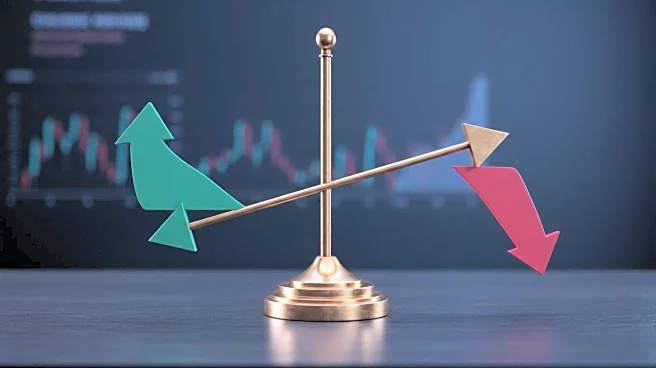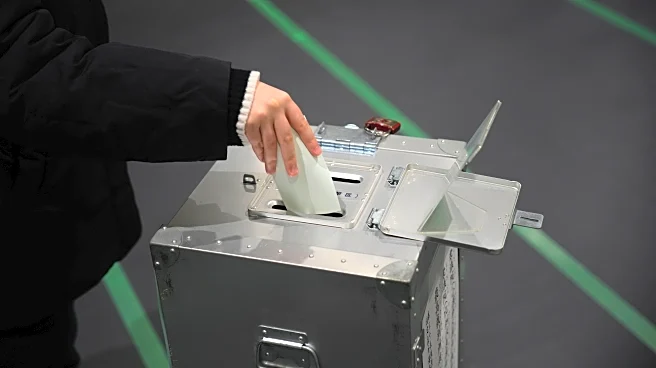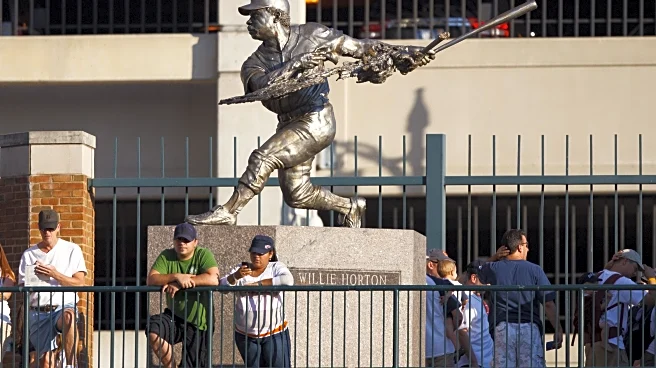What is the story about?
What's Happening?
Federal Reserve Chair Jerome Powell has indicated that inflation in the US is likely to edge up, as the job market faces potential risks. Speaking at the Fed's annual conference in Jackson Hole, Powell noted that the effects of higher tariffs on prices are now visible, though he expects the impact to be short-lived. The personal consumption expenditures price index, excluding food and energy, is forecast to rise 2.9% in July, marking the fastest annual pace in five months. This development poses a challenge for the Federal Reserve in balancing rising prices with job market stability.
Why It's Important?
The anticipated rise in inflation is crucial for economic stakeholders, as it affects consumer spending, business costs, and monetary policy decisions. Higher inflation could lead to increased costs for goods and services, impacting household budgets and corporate profitability. The Federal Reserve's approach to managing inflation and job market risks will influence interest rates and economic growth, affecting sectors such as housing, retail, and manufacturing.
What's Next?
Investors and economists will closely monitor upcoming inflation and jobs reports to assess the likelihood of a rate cut in September. Comments from Fed officials, including Governor Christopher Waller and regional bank presidents, will provide insights into the Fed's policy direction. The central bank's decisions will have significant implications for financial markets and economic stability.
Beyond the Headlines
The interplay between inflation and the job market highlights broader economic challenges, including the impact of trade policies and global economic conditions. The Fed's ability to navigate these complexities will be critical in maintaining economic resilience and addressing long-term growth prospects.
















